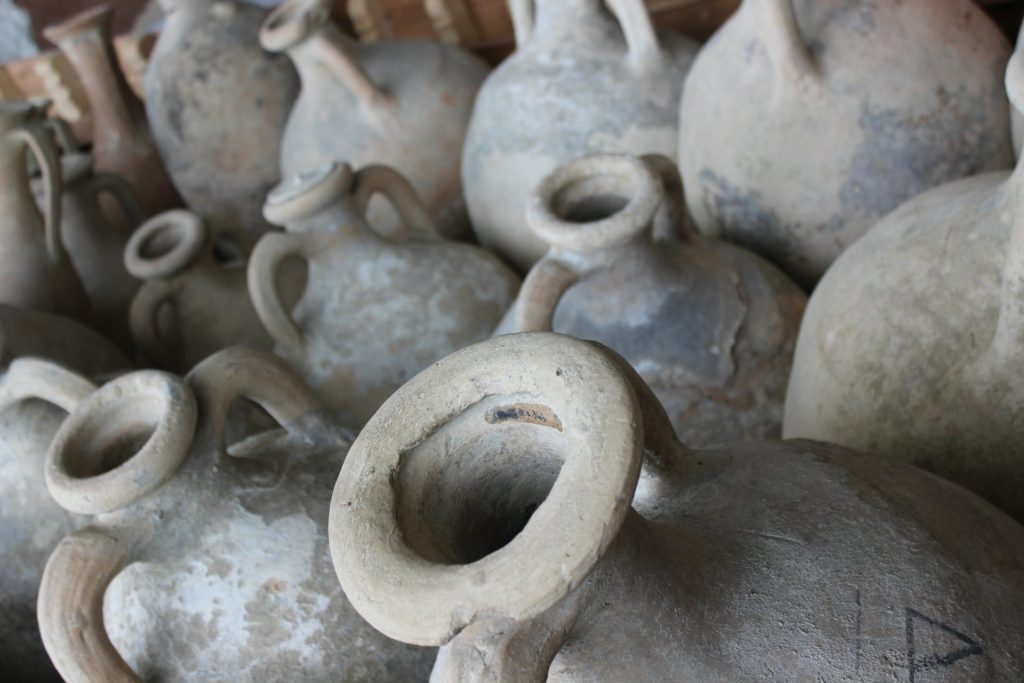What Do You Need God to Provide?
2 Kings 4:1-7 (ESV)
Elisha and the Widow’s Oil
Now the wife of one of the sons of the prophets cried to Elisha, “Your servant my husband is dead, and you know that your servant feared the LORD, but the creditor has come to take my two children to be his slaves.” 2 And Elisha said to her, “What shall I do for you? Tell me; what have you in the house?” And she said, “Your servant has nothing in the house except a jar of oil.” 3 Then he said, “Go outside, borrow vessels from all your neighbors, empty vessels and not too few. 4 Then go in and shut the door behind yourself and your sons and pour into all these vessels. And when one is full, set it aside.” 5 So she went from him and shut the door behind herself and her sons. And as she poured they brought the vessels to her. 6 When the vessels were full, she said to her son, “Bring me another vessel.” And he said to her, “There is not another.” Then the oil stopped flowing. 7 She came and told the man of God, and he said, “Go, sell the oil and pay your debts, and you and your sons can live on the rest.”
Digging into God’s Word
Our eyeglass team had spent the week testing eyes and providing eyeglasses for a community in Haiti. We were hot and sweaty and so in love with the people. The need was great, and our supplies were limited. In the eyeglass world, the strength of a lens is indicated by a positive or negative number. For example, a -1.0 lens is used by a person just barely in need of distance help. A +1.0 lens is a low-power reading lens: The person needs a little help to read close-up. I happen to wear glasses in the -5.0 to -6.0 region: My distance vision is pretty bad!
We were in our last day of the eyeglass clinic, when word spread that we were low on -1.0 glasses. Glasses in those lower ranges were the most needed variety, and we knew we didn’t have enough to get us through the day.
Nancy and I were standing at the wall by the eye charts when we received the news. With instant faith, Nancy said something like, “We are just going to pray about it, because God can provide.” Between testing clients, we clasped hands and with trembling voices prayed, begging God to do the impossible.
How could we leave without giving people glasses to help them see, when we wouldn’t be back to provide more for another year?
That afternoon, as the supply ran desperately low, our lead interpreter, Dorlus, joined us in setting up an additional station to help get more people through the final few hours of the clinic. I teamed up with him, and we started testing. Client after client tested as needing reading glasses rather than distance help: +1.0, +1.0, +1.0, with a smattering of clients with other prescriptions in between. It became so obvious that we checked and double-checked to make sure we were testing correctly. Sure enough, we were.
Distracted by the strange results, Dorlus–a learned, godly man–looked at me and said, incredulously, “I don’t understand.” I looked back at him, now aware of the divine intervention, and replied, “I think we’re in the middle of a miracle.” He nodded, taking it in. Yes, a miracle of God’s provision. Extending the widow’s oil. Supplying just enough.
The widow who approached Elisha was desperate. Because she was in debt and her husband had died, she was in very real danger of losing her sons to lives of slavery with the creditor, a common practice of the time. Notice her level-headed actions, in the midst of her grief and anxiety:
- She sought godly advice. Because she knew of Elisha’s relationship with God, she trusted God’s word to her, spoken by Elisha.
- She was willing to do just about anything, including embarrassing herself by asking her neighbors for all of their spare jars.
- She worked with what she had–a little oil of her own and many jars loaned by neighbors–and trusted God for the rest. The rest of what, she did not know!
God provided. The little bit of oil filled jar after jar until the widow ran out of jars. And then the oil stopped flowing.
Isn’t that just like God to let us get to the point of desperation so that we cry out to Him, and when He provides, He does it in such a way that there is no other explanation than that it had to be Him?
What are you desperate for God to provide?
Digging Deeper
You will never regret making time for God. As you are able, spend time with God, reflecting on these questions or journaling your thoughts.
- What do you learn about God in this account? Consider for whom the miracle was done and how it was accomplished.
- What did you find most significant about the widow’s actions? How does that apply to your life at this time?
- You can find the principles of God supplying all of our needs and multiplying what is released to Him throughout the Bible. Consider the examples of Jesus feeding the five thousand with five loaves and two fish and providing manna as daily food for the Israelites as they wandered in the desert. What examples can you think of from your own life? When did God provide all that you needed or take something and multiply it beyond your expectations? Thank God for these gifts in your life!
Extra Info!
If you recognize this account from the Bible but thought it included something about flour and cakes of bread, you’re thinking of the account of Elijah and the widow at Zarephath. You can find it in 1 Kings 17:7-16. They are two different miracles that occurred at separate times–one under Elijah and the other under Elisha.
In case you have an inquiring mind, the amphoras (jars) in the photo with today’s post are actually from the Roman era, later than what would have been used by the widow in Elisha’s time.
Get These Devotions in Your Inbox!
Get every devotion of this series the minute it comes out. Sign up here! I promise to not fill your inbox, but what you receive will be well worth every click. Let’s Meet with God and Grow in Faith together!
I encourage you to start this series from the beginning. To do so, go to this spot. You can find devotions in other series by navigating around the website www.DiggingDeeperwithGod.com.
Print


